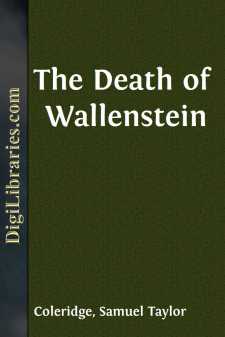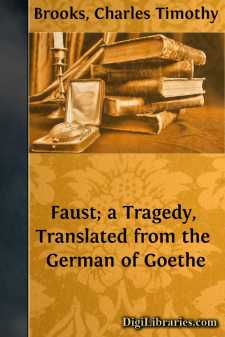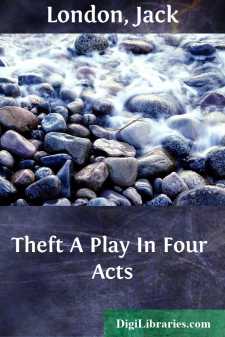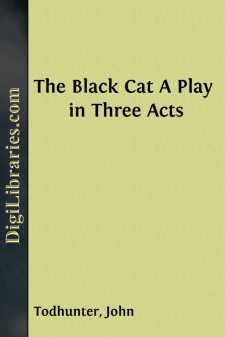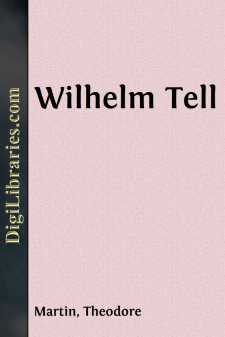Drama
General Books
Sort by:
by:
Eugene Walter
EUGENE WALTER (Born, Cleveland, Ohio, November 27, 1874) When questioned once regarding "The Easiest Way," Mr. Eugene Walter said, "Incidentally, I do not think much of it. To my mind a good play must have a tremendous uplift in thought and purpose. 'The Easiest Way' has none of this. There is not a character in the play really worth while, with the exception of the old agent. The...
more...
by:
Aristophanes
FOREWORD Lysistrata is the greatest work by Aristophanes. This blank and rash statement is made that it may be rejected. But first let it be understood that I do not mean it is a better written work than the Birds or the Frogs, or that (to descend to the scale of values that will be naturally imputed to me) it has any more appeal to the collectors of "curious literature" than the Ecclesiazusae...
more...
SCENE I. A room fitted up for astrological labors, and provided withcelestial charts, with globes, telescopes, quadrants, and othermathematical instruments. Seven colossal figures, representing theplanets, each with a transparent star of different color on itshead, stand in a semicircle in the background, so that Mars andSaturn are nearest the eye. The remainder of the scene and itsdisposition is given...
more...
FAUST. Night. In a narrow high-arched Gothic room, FAUST sitting uneasy at his desk. Faust. Have now, alas! quite studied throughPhilosophy and Medicine,And Law, and ah! Theology, too,With hot desire the truth to win!And here, at last, I stand, poor fool!As wise as when I entered school;Am called Magister, Doctor, indeed,—Ten livelong years cease not to leadBackward and forward, to and...
more...
At rise, is seen the entrance to a tent, out of which steps an animal-tamer, with long, black curls, dressed in a white cravat, a vermilion dress-coat, white trowsers and white top-boots. He carries in his left hand a dog-whip and in his right a loaded revolver, and enters to the sound of cymbals and kettle-drums.) Walk in! Walk in to the menagery,Proud gentlemen and ladies lively and merry!With avid...
more...
by:
Jack London
ACTORS' DESCRIPTION OF CHARACTERS Margaret Chalmers. Twenty-seven years of age; a strong, mature woman, but quite feminine where her heart or sense of beauty are concerned. Her eyes are wide apart. Has a dazzling smile, which she knows how to use on occasion. Also, on occasion, she can be firm and hard, even cynical An intellectual woman, and at the same time a very womanly woman, capable of...
more...
by:
Moliere
PROLOGUE. The front of the stage represents a rustic spot, while at the back the sea can be seen in the distance. SCENE I. Flora. appears in the centre of the stage, attended by Vertumnus, god of trees and fruit, and by Palemon, god of the streams. Each of these gods conducts a troup of divinities; one leads in his train Dryads and Sylvans, and the other River Gods and Naiads. Flora sings the...
more...
by:
John Todhunter
Act I. Scene: Denham's Studio. Large highlight window in sloping roof at back. Under it, in back wall, door to landing. l of the door the corner is curtained off for model's dressing-room. r of door a large Spanish leather folding screen, which runs on castors, shuts off from the door the other corner, in which is a "throne," pushed up against the wall. Above the "throne"...
more...
by:
Theodore Martin
SCENE I. A high, rocky shore of the lake of Lucerne opposite Schwytz.The lake makes a bend into the land; a hut stands at a shortdistance from the shore; the fisher boy is rowing about in hisboat. Beyond the lake are seen the green meadows, the hamlets,and arms of Schwytz, lying in the clear sunshine. On the leftare observed the peaks of the Hacken, surrounded with clouds; tothe right, and in the...
more...
SCENE I. A spacious hall, supported on columns, with entrances on both sides;at the back of the stage a large folding-door leading to a chapel. DONNA ISABELLA in mourning; the ELDERS OF MESSINA. ISABELLA.Forth from my silent chamber's deep recesses,Gray Fathers of the State, unwillinglyI come; and, shrinking from your gaze, upliftThe veil that shades my widowed brows: the lightAnd glory of my days...
more...




